This article is sponsored by MALTESERS in partnership with Comic Relief as part of the #LoveBeatsLikes campaign.
“It takes a village to raise a child” is an African proverb that is often quoted but hard to pin down in terms of origin. The ethos behind the quote is clear: just as the English poet John Donne told us that “no man is an island”, anyone attempting to raise children will know that no family is an island either.
Our communities and extended support networks are essential to our children’s wellbeing, and even more immediately so, our wellbeing as parents. But what does that concept of “the village” look like today, when more of us are living further and further away from our families and modern life means that we are pressed for time more than ever?
We spoke to three mothers from across the UK about what their “village” looks like in and amongst the demands of modern parenthood. It’s an opportunity for us all to think about creative ways we can support the mums in our lives, whether they are friends, family members or fellow mum friends supporting each other.
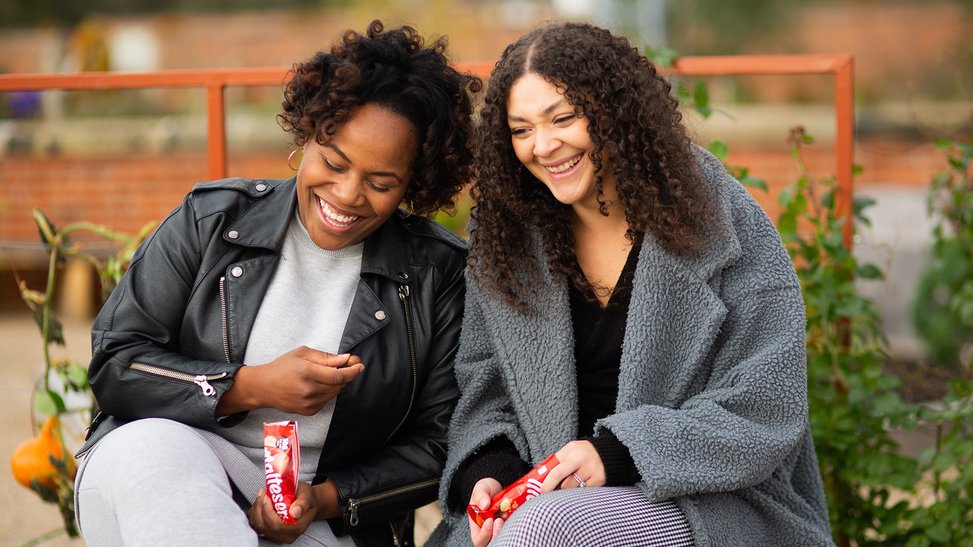
Monique & Yemisi, Manchester
On a scale of one to ten – one being severely overwhelmed and ten being largely mentally and emotionally stable – Monique Thomas describes her mental health on average as five out of ten. This is a culmination of her mental health ratings throughout her third pregnancy and leading up to her youngest son’s seven-month milestone. Monique says: “My mental health has been the most challenged it’s ever been during this pregnancy, and also post-birth.”
This was the result of a number of factors including being diagnosed with symphysis pubis dysfunction during pregnancy and suffering from severe anxiety post-pregnancy. The condition severely restricted her mobility as a result of pelvic discomfort. Both the pain and anxiety took their toll on her mental health and wellbeing.
Despite her health and anxiety challenges, Monique reflects on some of the things her “village” did to really encourage her. Being based in Manchester, with her immediate family living in Birmingham and Nottingham, Monique’s local community has been invaluable.
She was particularly touched by the online baby-shower her friend Yemisi organised for her as due to Covid it wasn’t possible to have an in-person celebration.
“About 50 of my friends attended, it was beautiful,” Monique says. “I didn’t know it, but I really needed to gather with other women before birth and that was the vehicle we had.”
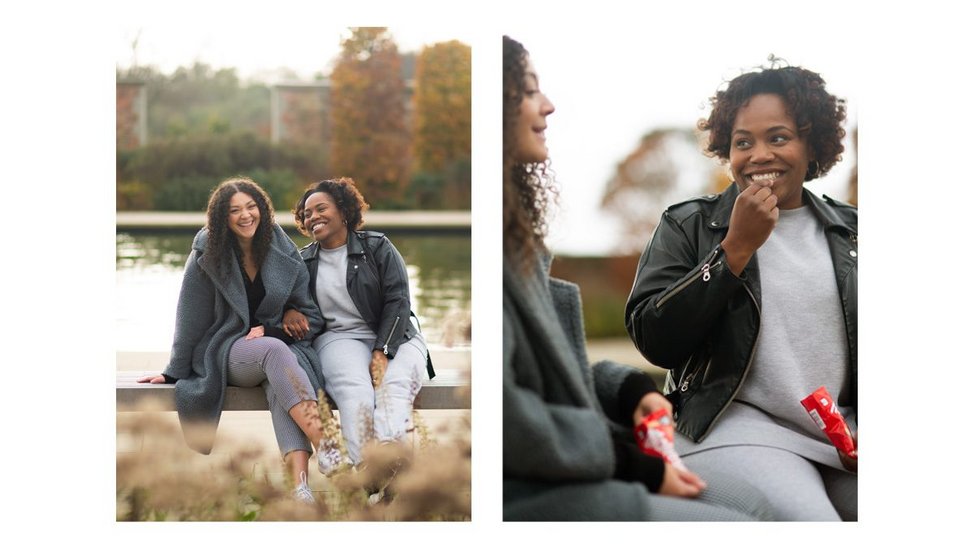
Monique met Yemisi through church and after the birth of her third son, Yemisi, along with other church members, organised a meal rota, delivering home cooked meals for two weeks to Monique and her family.
“It helped so much,” Monqiue says. “Not just the food but also seeing them, especially after this period of isolation. One of the blessings of motherhood is that it’s created the opportunity to connect with people I perhaps wouldn’t have otherwise.”
Being introduced to motherhood for the third time, Monique considered the importance of physical support versus social media support through likes and direct messages. Having a baby during a pandemic meant that social media interactions were important for Monique, however physical contact where possible was paramount.
“Physical contact is essential. Could I be without social media contact? Yes. Could I do without physical contact? No. Do I want to be without social media though? No. It is nice to get online and connect with women,” she says.
“The village can be anywhere. There’s nothing like a physical hug and being able to look a friend in the eye but wherever I feel a sense of community, belonging, support and strength, that is my village. From my neighbours, to my church family, to my school mums and colleagues. This can happen remotely these days and I really appreciate the connectivity of social media because I have villagers on there too!”
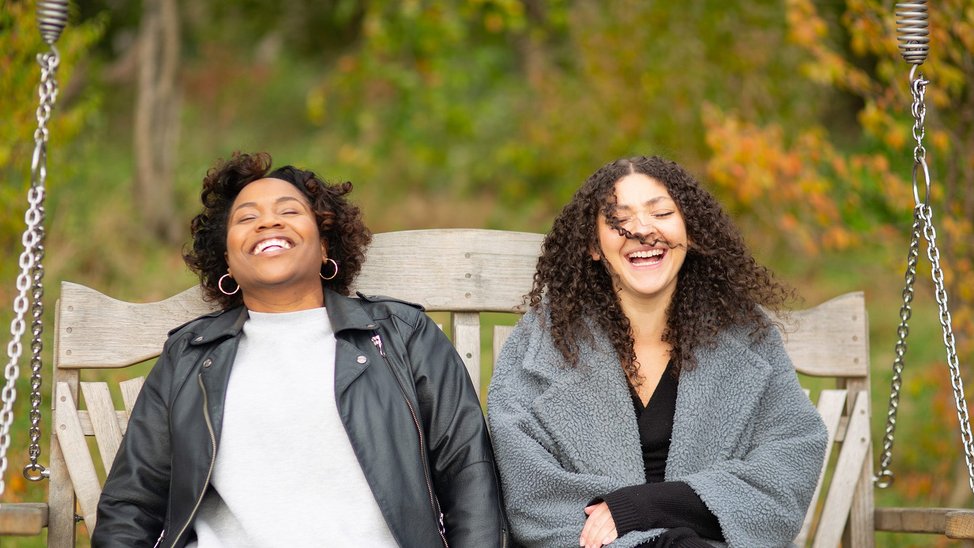
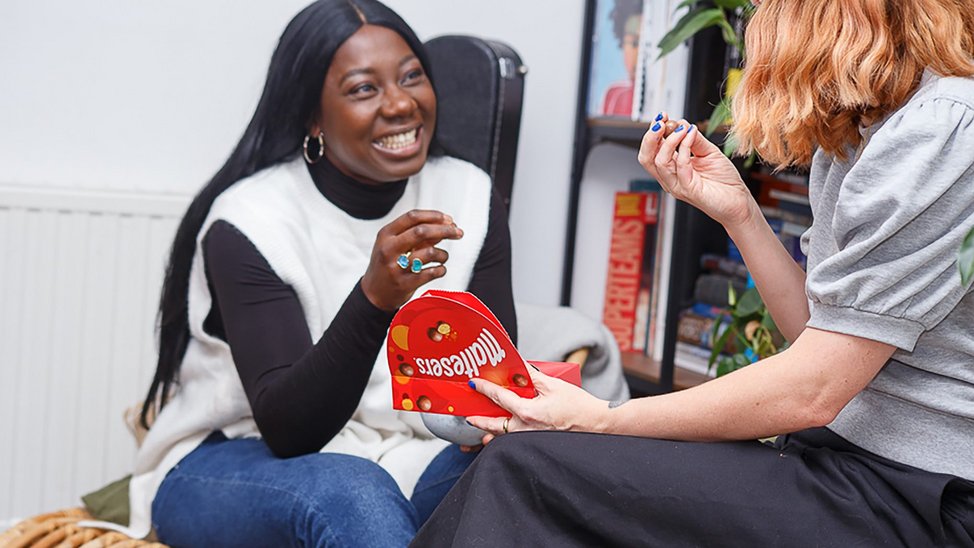
Lumi & Amy, Birmingham
Although never having been professionally diagnosed with postnatal depression, a year after experiencing symptoms with her first child, Lumi realised she had previously been challenged with it.
Lumi says: “I was exhibiting self-sabotaging behaviours. I became more aware of the importance of looking after myself. I have always ploughed through life being ‘tough’ and didn’t think about the impact of having a baby on every aspect of my life, including my mental health. I was shocked when I realised I had postnatal depression.”
Having had this experience and now being, as she put it, “three children deep”, Lumi describes herself as being generally more open, though naturally she considers herself a private person. She said that it was now “relatively easy to ask for help”, explaining that she would struggle if she didn’t.
Her new willingness to be more open, ask for help and accept help offered, has meant ushering in some fond memorable moments that have boosted her mental health. Lumi met Amy through her sister who used to work with Amy’s partner. They bonded over being pregnant at the same time and then ended up moving to the same area and are now neighbours.

“Amy would go on regular walks with me or have lockdown doorstep chats; she provided much needed adult conversation. She would also send care packages – food drop-offs and baby and birthday gift deliveries. She also made and delivered to me a delicious drink on repeat for a couple of weeks called the Snowball! Her family were a huge help during the delivery of my youngest mid-lockdown,” says Lumi.
She also mentioned “villagers” making all the difference when it came to the school run for her oldest child. They would drop him at school in the morning or pick him up after school and take him to his doorstep. Lumi says she has a good network of people who actually do what they say they will do to help.
When asked about the value she placed on her physical community in comparison to her social media community, Lumi said that she felt both had their place but a physical community was important for practical reasons.
“It is important as a mum to join groups to make sure you have a community close by just in case you need something practical.”
“I cannot do this journey of life alone – or just with my husband – especially with the responsibility of having kids. My village are the people I trust to ask for help or to notice I need help even if I don’t ask. They are the people that make me laugh and remind me to enjoy each day. We support each other practically, mentally, emotionally and spiritually.”
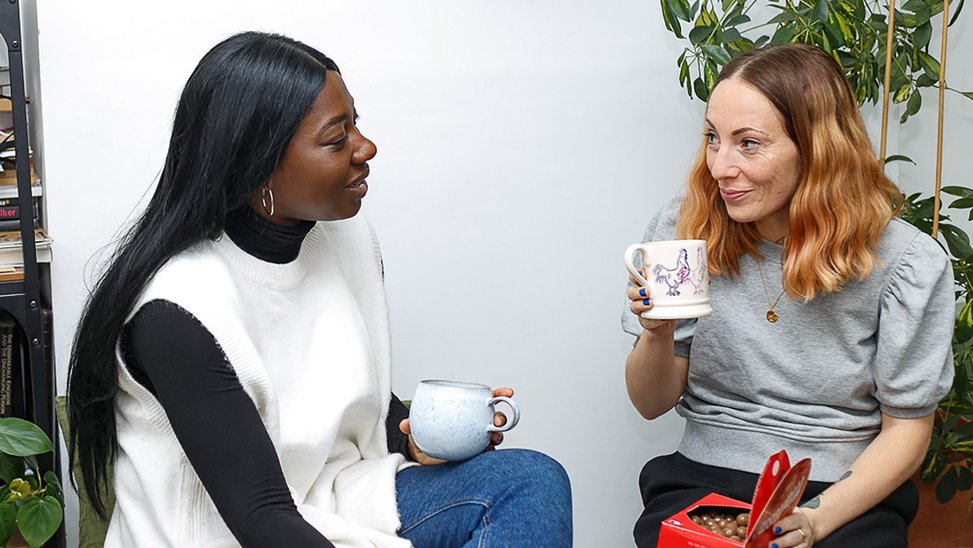
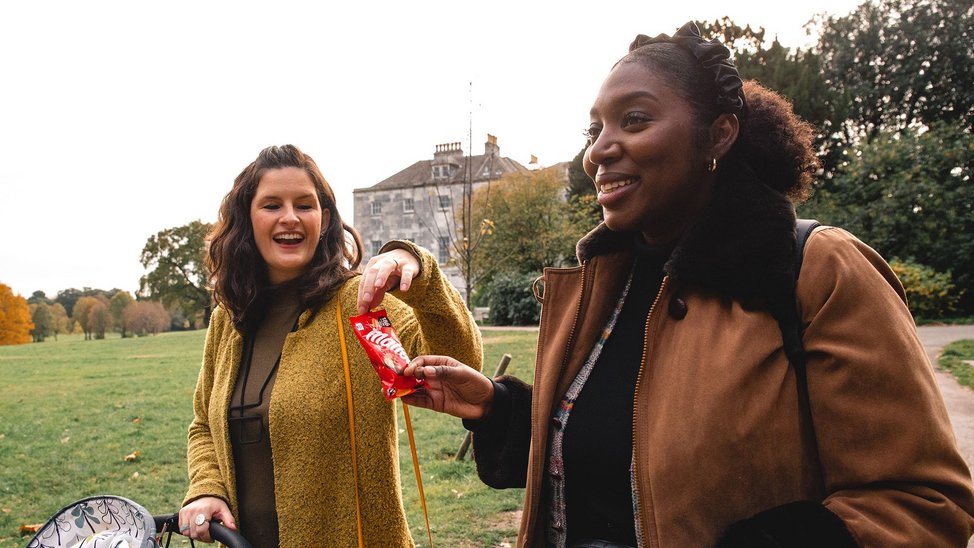
Tash & Samantha, London
Having a child during the pandemic made Tash feel like she couldn’t ask for help. She felt it wouldn’t be fair to ask for help with everyone being affected in some way by the pandemic. She said: “It can be hard to support other people when you are going through something yourself.”
Despite the difficulty she faced asking for support she was surrounded by it anyway. When the people on her street created a WhatsApp group during lockdown, Tash discovered she had a neighbour called Samantha who was also having her second child. It was great to go for walks in the park and talk with someone who just understood what she had been going through.
For Tash, just knowing that people were willing to be a listening ear was a real boost for her mental health. “I have a couple of people I can just talk to about anything. You can vent, talk, cry and exhale. When you know people care it helps alleviate the tough internalised struggles you face as a mother mentally,” said Tash.

However, she did talk about some things that were expected by people that were detrimental to her mental health. She expressed that she believed everyone meant well but sometimes expectations were too high. For example, being expected to invite people over to see the new baby, which can go out of the window when you’re looking after a new baby and now two children.
Nonetheless, Tash says: “A village is there whatever the weather. With social media it is a little pick me up but it isn’t anything I can say I have felt really supported by. It is very much passing comments and likes. The more we have been able to see people in real life, the more I have come to see just how much I value it.”
Maltesers is working in partnership with Comic Relief to fund mental health support projects for mums. See the work they are doing and how to access support by visiting www.comicrelief.com/partners/maltesers.